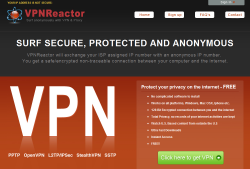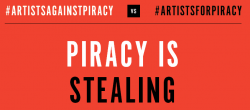Weekly News Roundup (7 June 2015)
I never thought I would see unskippable ads and auto-play promos on Netflix, but that’s exactly what I saw this week. I’ve never really understood why networks still need to advertise themselves, especially for established shows like Orange is the New Black. It feels like preaching to the converted, as the only people who don’t know about Orange is the New Black are people who just don’t want to watch it, and no amount of advertising is going to change that fact.
Not a huge amount of news this week, but still a few interesting ones, including the one about Netflix ads.
![]()
There is now a greater acceptance of the view that regardless of you think should be done about piracy, it is here and it is something that cannot be ignored or simply maginalised (as something done by “criminals”). Instead of trying to eliminate it completely, the reality is that piracy is here to stay, and that it is just like any other market force that needs to be accounted for. New tech companies like Netflix and Spotify have long realised this paradigm, and have made their services competitive as a result – traditional firms like most Hollywood studios and recording labels, have not, and has suffered as a result.
But according to Netflix, it’s just not about competing with piracy – it’s also about using piracy to its advantage. According to Netflix boss Reed Hastings, piracy teaches users to get used to streaming videos online, which makes it easier for Netflix to convince these same users to sign up. These users are already likely to have high bandwidth or unlimited bandwidth accounts, which makes it one less hurdle for them to make the switch to Netflix.
It’s this kind of positive thinking and willingness to adapt that’s behind the success of companies like Netflix and Hulu. Those that don’t want to accept the paradigm shift, and instead uses technological and legal solutions to maintain the status quo, are the ones that will ultimately lose out in the end.
Interestingly, Hastings also explains why when Netflix comes to a new country (such as Australia), it’s catalogue of titles is so crap. Apparently, it’s easier to negotiate for content only if that region’s Netflix has a high number of subscribers. I don’t know who made this particular hoop for Netflix to jump through, but it just goes to show the problems associated with the current licensing regime (too expensive, too restrictive, and too convoluted).

Is using a VPN to access US Netflix in Canada that much different to shopping at Amazon.com instead of Amazon.ca?
It’s these convoluted hoops that ensures one region’s Netflix is better or worse than another region’s, despite there being perhaps very little geographical distance between the two regions. Let’s say between Canada and the US (or between Toronto and Detroit). This kind of content inequality has made many Canadian Netflix users sign up to VPN or smart DNS services so they can access the US Netflix library, which features much more content (although personally I find that Canada has better movie releases, sometimes), including the daughter of new Canadian Bell Media boss Mary Ann Turcke.
But instead of seeing the content inequality as a problem (and perhaps as an opportunity as well), Turcke, the boss of an old media firm, sees this as “theft” and, on a personal note, has put a stop to her daughter’s “stealing”. And in Turcke’s mind, the solution is to not adapt to what users want, but instead, to tell those users they’re wrong, they’re criminals, and that what they’re doing is “unacceptable” – users including her own daughter!
With this kind of mindset, it’s no wonder old media has been so unsuccessful at adapting to user demands in the Internet age, and why they have allowed innovative companies like Apple, Netflix and Spotify to take over core parts of their business. When you see “new” as “bad”, then this is the inevitable outcome.
![]()
Meanwhile, do not be concerned that Netflix has started showing ads. It’s only ads for its own original shows, but they’re unskippable (at least the one I saw, for Orange is the New Black), and the worry is that this will be expanded one day to include third-party ads. Netflix has been quick to reassure users that this won’t be the case, but Netflix ads or third party ones, they’re all annoying, especially if they’re unskippable.
Hopefully, this will be one of those things that Netflix test from time to time, but never makes it as a regular feature, especially if most users are like me and don’t view these changes favourably.
![]()
A new PS4 model with a 1TB hard-drive may be available sometime this year, and may be announced as soon as E3 in two week’s time. But the new PS4 won’t be the much anticipated “slim” model, as the FCC filings which revealed the new PS4 models show that dimensions of the console has remained the same.
What has changed however is the power requirement, from 250 watts to 230 watts, suggesting that new fabrication process for the PS4 hardware is now ready, which may lead to a price cut too.
——
That’s it for another week, hope you enjoyed this one. See you in seven!


